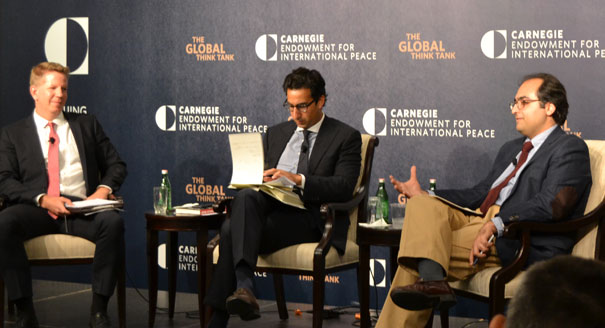Registration
You will receive an email confirming your registration.
The threat of radical non-state actors, such as the Islamic State, has created an apparent convergence of interests between Iran, Saudi Arabia, and the United States. Can the three countries overcome their political, ideological, and religious differences in order to forge a common security strategy?
Roham Alvandi reflected on the last period of U.S.-Iranian-Saudi collaboration—during the Cold War—when the three countries were united against communism. Alvandi shared insights from his new book, Nixon, Kissinger, and the Shah: The United States and Iran in the Cold War, highlighting how the Nixon-Shah relationship can illuminate the future path of U.S.-Iranian relations. Frederic Wehrey acted as a discussant, and Karim Sadjadpour moderated.
Roham Alvandi
Roham Alvandi is an assistant professor at the London School of Economics. He is the author of Nixon, Kissinger, and the Shah: The United States and Iran in the Cold War (Oxford University Press, 2014), in which he examines the rise and fall of Iran’s Cold War partnership with the United States in the 1970s.
Karim Sadjadpour
Karim Sadjadpour is a senior associate at the Carnegie Endowment for International Peace. A researcher on Iran, he has conducted dozens of interviews with senior Iranian officials and hundreds with Iranian intellectuals, clerics, and dissidents, among others.
Frederic Wehrey
Frederic Wehrey is a senior associate in the Middle East Program at the Carnegie Endowment for International Peace. He focuses on Gulf political and security affairs and U.S. policy in the Middle East.
